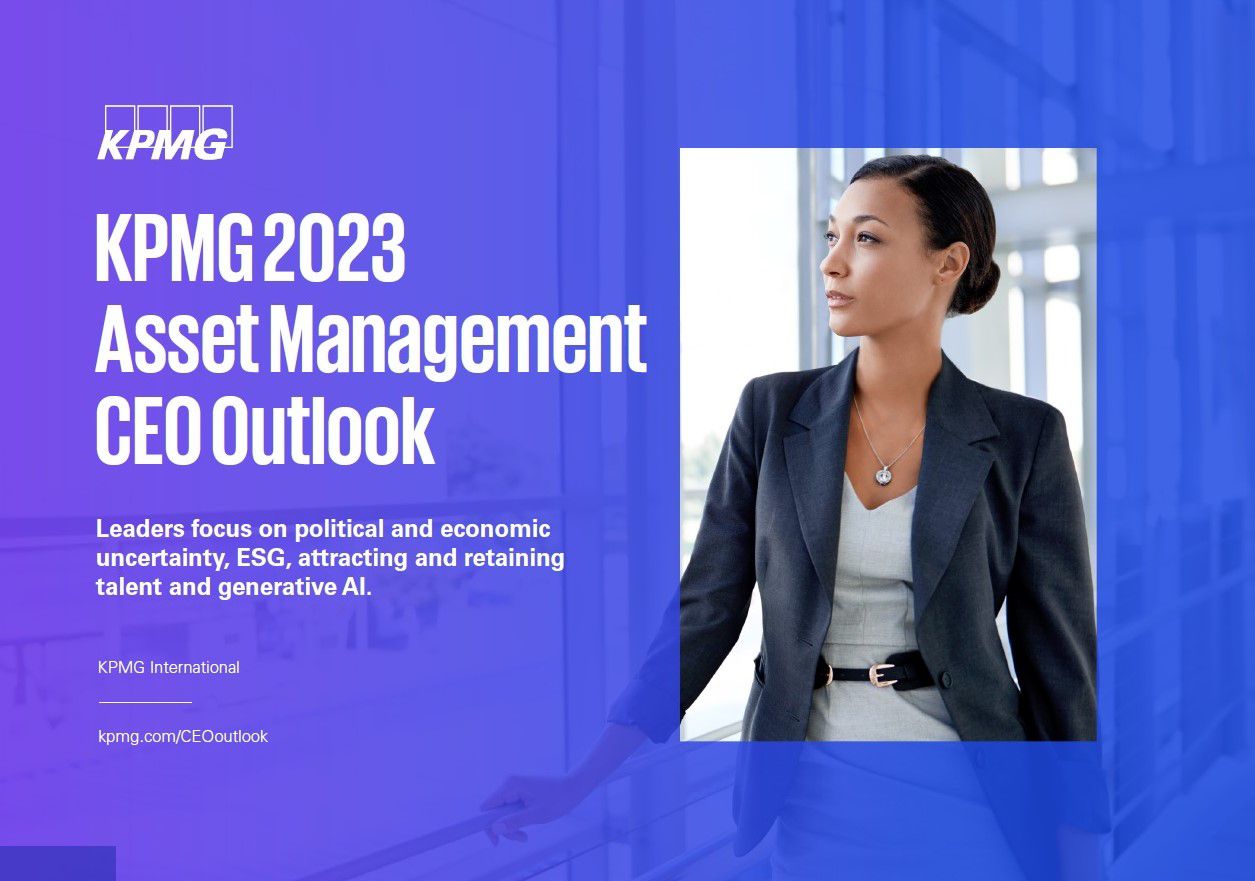Based on interviews with 80 asset management CEOs in 11 key markets, this report finds that most industry leaders are optimistic about their sector and the global economy. They expect that their organizations will increase earnings and employ more people over the next three years, although political uncertainty is their greatest perceived threat.
The majority of those surveyed are willing to take action on ESG, including selling a profitable part of their business that is damaging its reputation. Environmental issues, particularly moving towards net zero greenhouse gas emissions, are their most mentioned priority.
Attracting and retaining talent is the most-mentioned operational priority for asset management CEOs in the 2023 survey, which also recorded a sharp increase in the proportion saying they have a strong appetite for mergers and acquisitions.
Most see cyber crime and cyber attacks as pressing issues while perceiving generative AI as an important investment opportunity, including to improve security. They are concerned about a lack of governance for this new technology, with most supporting regulations similar to those for climate change.

KPMG 2023 Asset Management CEO Outlook
Leaders focus on political and economic uncertainty, ESG, attracting and retaining talent and generative AI.
Download PDF (3.12MB) ⤓
KPMG’s 2023 survey of asset management CEOs includes detailed analysis on specific topics.
Creating economic value:
Asset management leaders are generally optimistic, particularly for their industry and their own companies, with most expecting to see financial and headcount growth over the next three years. They have some economic and political concerns, with most thinking that interest rates could prolong a recession and political uncertainty moving to the top of the list of perceived threats in this year’s survey.
Delivering on trust and purpose:
Respondents say that the greatest impact of ESG (environmental, social and governance) is on core functions and customer relationships, showing how it has become a strategic issue for asset management. Environmental challenges including the shift towards net zero greenhouse gas emissions were the most-mentioned ESG priority, which also found that a majority of leaders are willing to sell profitable but reputation-damaging business units.
Planning strategy:
Attracting and retaining talent has risen to the top of the research’s list of operational priorities, something which can be addressed by clarifying how the industry can play a positive role in society. Inflation proofing capital and income costs remains an important issue for respondents, while compared with 2022 this year’s research found a significant increase in the proportion of respondents with a strong interest in mergers and acquisitions.
Using technology effectively:
Cyber crime is a concern for most respondents and more than a quarter say their organizations are under-prepared for a cyber attack. They also think staff should work in the office at least some of the time and believe those doing so are likely to be rewarded through promotions or salary increases. Only one in 10 expect traditionally office-based roles to become fully remote over the next three years.
Implementing generative AI:
The majority of asset management leaders see generative artificial intelligence (AI) as a top investment priority with hopes that it will lead to new product and market growth opportunities. Respondents have concerns, led by ethical issues and costs of implementation, and three-quarters think it should be regulated in a similar way to climate change commitments.
Methodology
About the KPMG 2023 CEO Outlook
The 9th edition of the KPMG CEO Outlook, conducted with 1,325 CEOs between 15 August and 15 September 2023, provides a unique insight into the mindset, strategies and planning tactics of CEOs.
All respondents have annual revenues over US$500 million and one-third of the companies surveyed have more than US$10 billion in annual revenue. The survey included leaders from 11 markets (Australia, Canada, China, France, Germany, India, Italy, Japan, Spain, UK and US) and 11 key industry sectors (asset management, automotive, banking, consumer and retail, energy, infrastructure, insurance, life sciences, manufacturing, technology, and telecommunications). The asset management research involved 80 CEOs, with wealth management and private equity (or similar direct investors) as the largest sub-sectors.
NOTE: Some figures may not add up to 100 percent due to rounding.
Explore
Connect with us
- Find office locations kpmg.findOfficeLocations
- kpmg.emailUs
- Social media @ KPMG kpmg.socialMedia






